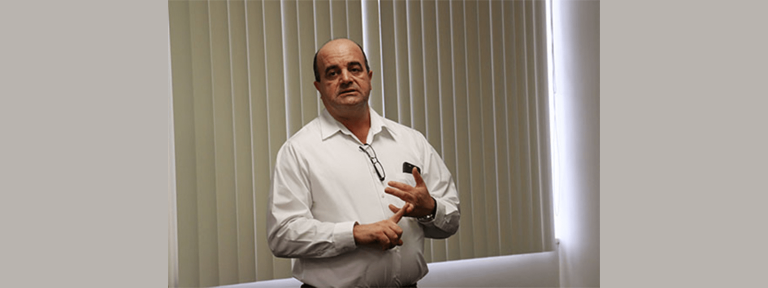
“Sustainability is about energy development that meets our current needs without compromising the ability of future generations to meet their own needs because of limited natural resources, mainly fossil fuels.”
Dr. Gianfranco DiGiuseppe, Kettering University Mechanical Engineering faculty member, would like to invite you to “KEEN City: an entrepreneurially minded and energy conscious community.” A city that uses 100 percent sustainable energy sources to fulfill its power needs and, at the moment, is fictional. However, with the help of inspiring entrepreneurial engineers in MECH 422 (Energy Systems Laboratory), the possibility of a city that is fully sustainable and pollution-free may be attainable.
“The idea of sustainable energy isn’t only about efficiency or renewable energy,” DiGiuseppe said. “Sustainability is about energy development that meets our current needs without compromising the ability of future generations to meet their own needs because of limited natural resources, mainly fossil fuels.”
Therefore, DiGiuseppe assigned an open-ended project to students in his class: design a city, house or building that uses sustainable energies for their electrical power needs. Throughout the project students were motivated to deploy the entrepreneurial mindset and attributes.
The development of KEEN City was funded by a grant from the Kern Entrepreneurial Engineering Network (KEEN). Several faculty members at Kettering University (and in different departments) have received about $40,000 each, for a total of $240,000 over the last two years, from KEEN to infuse and incorporate various aspects of the entrepreneurial mindset and attributes into different engineering and science courses. Additionally, DiGiuseppe is one of six Kettering faculty members to receive internal topical grants from KEEN that supports instructors to infuse the entrepreneurial mindset in the classroom.
“The way the entrepreneurial mindset is introduced in the classroom is by creating value that benefits current and future generations,” DiGiuseppe said. “Sustainable and clean energy has a significant environmental and societal impact.”
DiGiuseppe’s students came up with a plethora of ideas to power the community, homes and buildings in their fictional city. A combination of solar cells and wind turbines were the most prominent solutions. However, students were encouraged to think freely and explore less known technologies rather than base their work on already existing techniques. This led to other ideas like using waste from landfills to produce biogas or developing solar-powered roadways.
“Part of the entrepreneurial mindset is to anticipate future needs,” DiGiuseppe said. “If something is too expensive today, it can get cheaper 10 years from now. A solution might not be feasible today but it could feasible in the future. Therefore, a cost analysis was a part of this project as well."
DiGiuseppe’s project is unique because KEEN City is grounded in economics. The proposed ideas or solutions have to make economic sense from an entrepreneurial perspective. If profits aren’t immediately imminent, then students are asked to project a return on investment in the future as energy technologies improve. Therefore, sustainability in this project is examined both from the perspective of natural resources, technical viability, and economic feasibility - all of which represent attributes of an entrepreneurial engineer.
“The reason I like to call it sustainable is because it’s something that can be sustained and not finished,” DiGiuseppe said. “Students learn about new technologies but they also had to evaluate them to see if they made economic and temporal sense.”
DiGiuseppe has received positive feedback from students who participated in the KEEN City project as they enjoyed the “real life applications” of the work. He plans to continue to use this open-ended problem approach in his future classes.